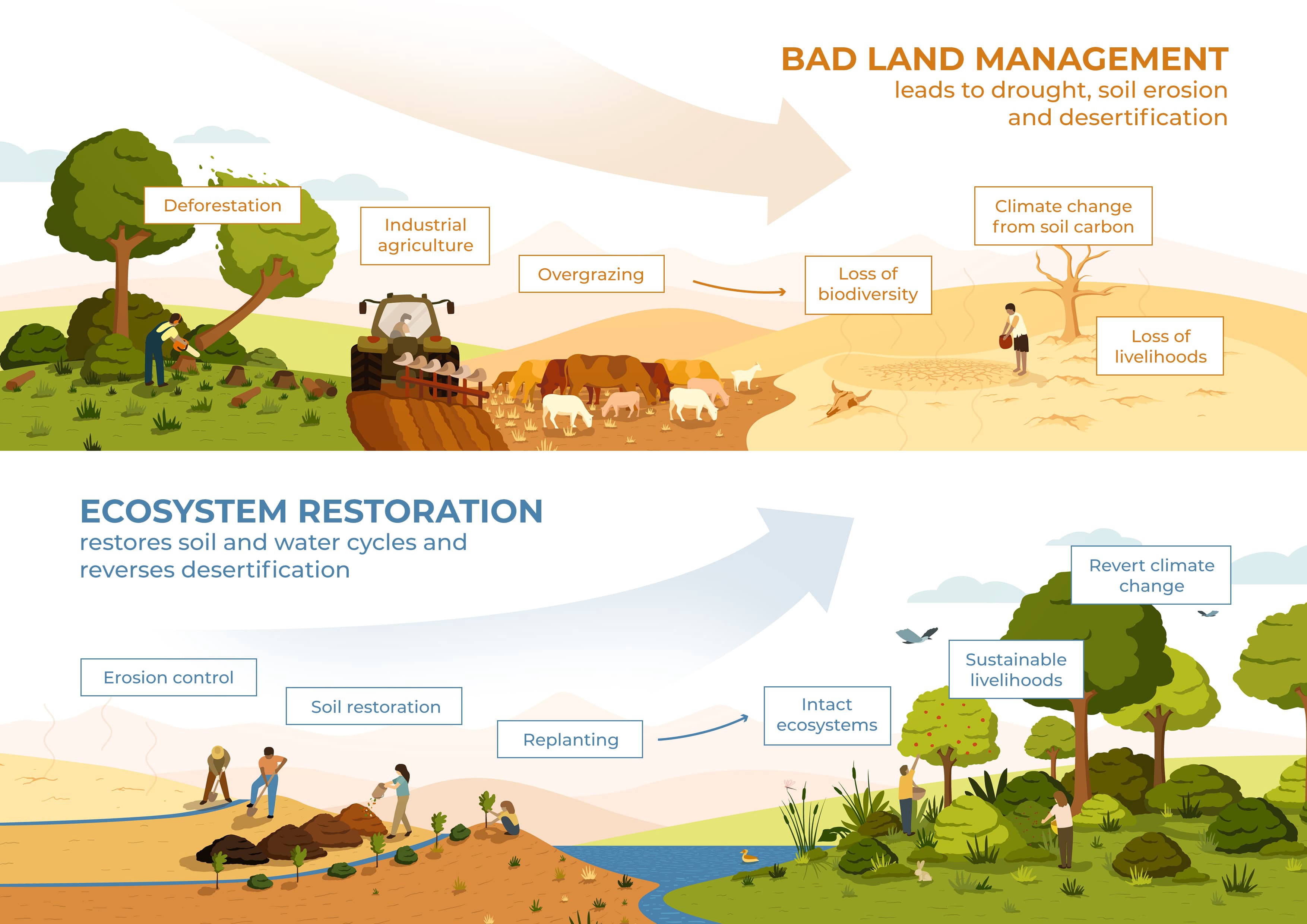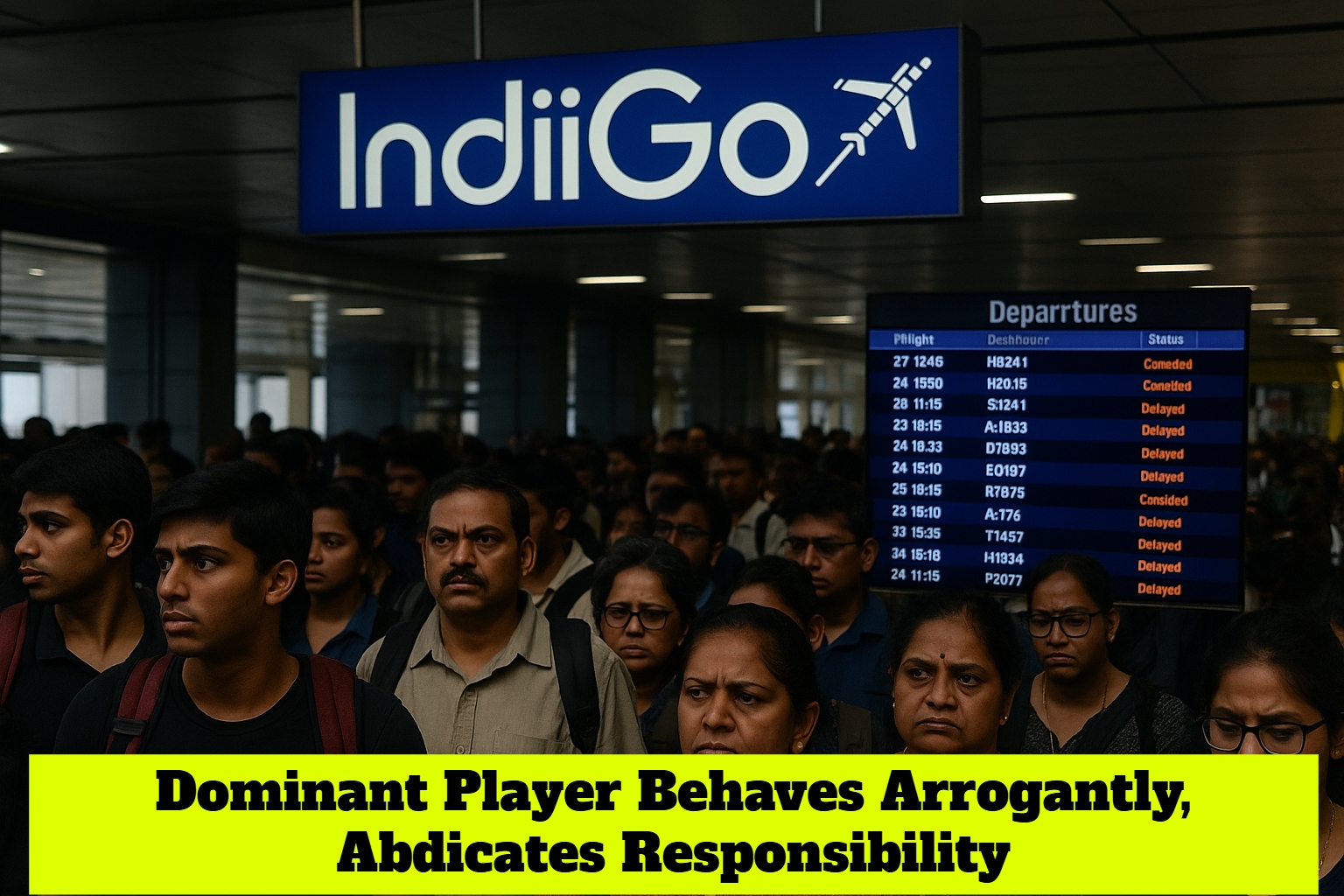

By Anukriti Roy
First publised on 2021-06-08 04:24:55
Humans have either carelessly or in the name of development degraded, damaged or destroyed the ecosystem without giving a thought to the consequences. But now, a huge number of experts, communities and activists have forced governments all over the world to restore the ecosystem in a scientific and planned manner.
To restore ecosystem, it is meant to prevent, halt, and reverse this damage in order to going from exploiting nature to healing it. It also calls for assisting in the recovery of ecosystem that have been degraded or destroyed, as well as conserving those that are still intact. This means that all development work has henceforth to be carried out in a manner that causes no damage to the ecosystem. If there is some damage, efforts must be made to minimize it and restore as much as possible after the work is done. Ecosystem restoration is important to mitigate the extent of the ecological crisis that the world is currently facing, and protect the biodiversity for future generations.
The United Nations has said that the world loses enough forest every three seconds to cover a football pitch and over the last century over half of our wetlands have been destroyed. "As much as 50% of our coral reefs have already been lost and up to 90% of coral reefs could be lost by 2050, even if global warming is limited to an increase of 1.5°C," the world body has warned. This is a matter of serious concern and if we do not wake up now and restore ecosystem, it will have grave consequences for biodiversity in days to come.
When ecosystem are damaged the world is deprived of carbon sinks, like forests and peatlands (terrestrial wetland ecosystem). Emission of global greenhouse gases has grown exponentially for three years in a row which means that the world is heading towards potentially catastrophic climate change.
In recent times, the coronavirus pandemic has shown us on how loss of ecosystem can have devastating consequences. Shrinking natural habitat for animals has led to ideal conditions for pathogens - including coronavirus - to spread all over the world and at rapid speed. Further our food systems and the revival of forest and agrarian crops depend on healthy soils. But soil degradation not only compromises the essential value of the ecosystem but also its ability to produce healthy and sustainable foods. Therefore, the restoration of soil is important to sustain life on earth.
The World Environment Day 2021 focuses on ecosystem restoration and its theme is "Reimagine. Recreate. Restore." On this day, the UN will start the Decade on Ecosystem Restoration (2021-2030), a global mission to revive billions of hectares, from forests to farmlands, from the top of mountains to the depth of the sea.
For a country as densely populated as India and one that is undergoing rapid economic development, the loss of ecosystem has graver consequences. If we as a nation continue to degrade and damage the ecosystem and do not take up restoration of ecosystem seriously, a time will come - and not in too distant a future - when our natural defenses will fail and we will be left gasping for breath with no food and clean drinking water to support the very existence of our vast population.
As a result of mindless development and uncontrolled emission of greenhouse gases, the average temperature in India has already risen to an alarming 25.78 degree Celsius. The difference between the average highest and lowest temperature is also increasing. The climate change will leave India vulnerable to floods, storms and cyclones. Already, the frequency and ferocity of cyclones hitting the country has increased. It will also impact the monsoon rains which will become erratic, thereby having disastrous consequences for agriculture, the main livelihood of a majority of our people and so vital for the food security of the nation.
The indiscriminate use of insecticides and pesticides in the agriculture sector is contaminating the soil and the ground water resources. This will have serious long term implication as the soil will become infertile and there will be no drinking or irrigation water left. Filling up of water bodies is another area that is destroying ecosystem. The air pollution due to industries, vehicles and construction sites and the water pollution due to industrial wastes are also taking a heavy toll on the ecosystem.
India, like the rest of the world, will have to stop this damage to the ecosystem and begin serious and planned restoration. The time to start is now. Any further delay will set us back and the consequences will be disastrous.
pic courtesy: medium.com











